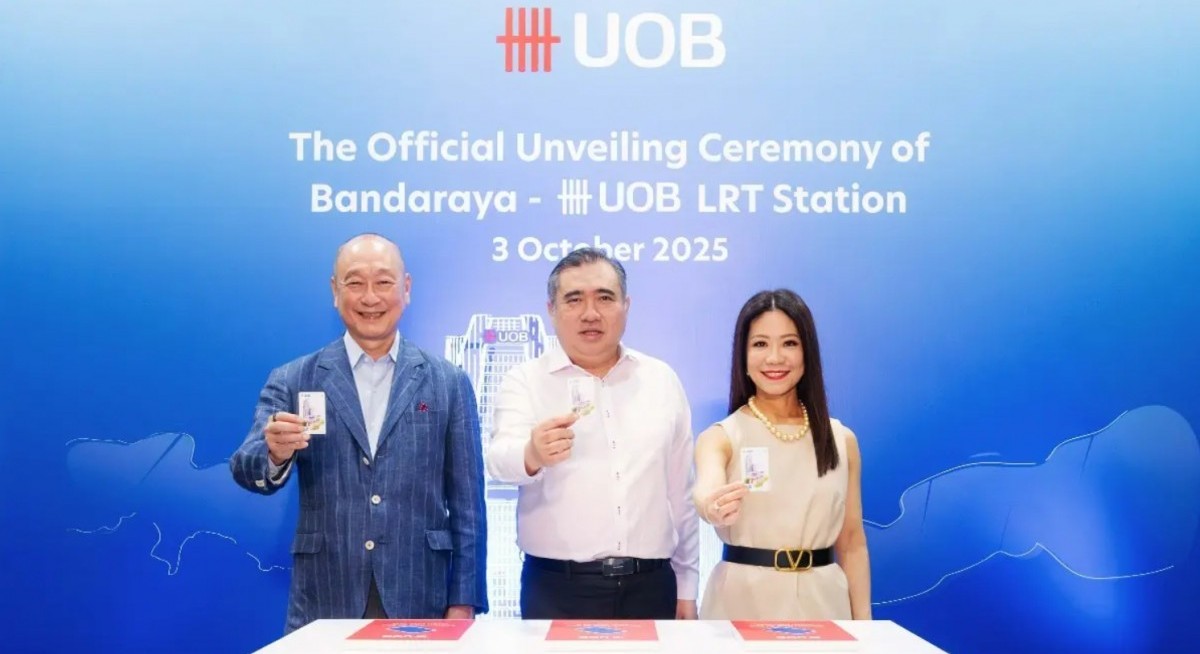“Public transport is not a profit-making venture... It is heavily subsidised by the government. To ensure financial sustainability, we need to explore alternative sources of revenue such as station branding and advertising," Loke said.
"We know that we cannot increase the fare for the public. We make it very affordable to Malaysians, but we have to be creative about how to raise more money, raise more funds, raise more revenue from other sources," he added.
He said rebranding a station is complex, involving changes to announcements, signs, and systems, but the whole process was completed in just seven to eight months.
According to UOB Malaysia CEO Ng Wei Wei, the branding of Bandaraya – UOB LRT Station is more than a symbolic gesture, it represents its "deep roots in this area where Menara UOB has stood since 1984".
See also: Malaysia’s surprise growth surge spurs 2026 forecast upgrades
"With our new headquarters, UOB Plaza 1 KL, just steps away, this initiative enables us to deepen community engagement, contribute to the city’s urban experience, and help advance public transportation to ease urban congestion and promote sustainability," she said. UOB is the country’s largest foreign bank, with 55 branches nationwide serving individuals, businesses and communities.
The partnership is part of Prasarana’s station naming rights programme, managed by PRIDE, which allows corporations to purchase naming rights to selected LRT and MRT stations as a means to generate non-fare revenue.
Some of the existing participants in the programme include Pavilion Damansara Heights — Pusat Bandar Damansara (Jendela Mayang) and Manulife-Semantan (Manulife Insurance), to name a few.
See also: Malaysia' solar leader to ramp up output as battery prices drop
Moving forward, Loke said initiatives like this not only help reduce the government’s financial burden in maintaining rail infrastructure but also encourage more Malaysians to embrace public transport.
“Currently, only 20% of Malaysians use public transport. We have a target of 40% under the National Transport Policy. Partnerships like this are key to achieving that target while improving sustainability and commuter experience,” he said.
This story first appeared on The Edge Malaysia.




